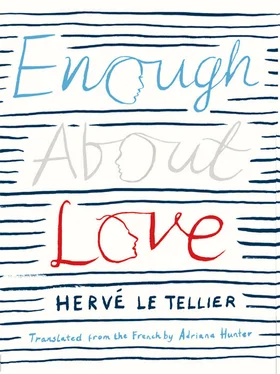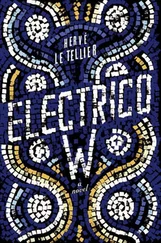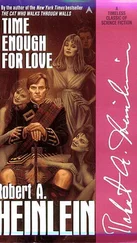Thomas has removed any emotion from his voice. By using Romain’s first name, he hopes to extract a response, but the man shows no reaction.
“I know nothing about you,” Thomas goes on. “That’s why what I’m about to say may not apply to you. Often, when a man wants a woman, it gives her a mysterious charm to other people. I’m not casting any doubt on the sincerity of—”
“Shut up.”
Thomas stops talking. They stay like that for a long time, not saying anything. The doorbell rings. The six o’clock appointment is early. Romain unfolds his great body, which seems to be a burden to him today. Thomas follows him, opens the door of his office. At the last moment, Romain turns around. Thomas looks at the hand held out to him, amazed; shakes it. Romain’s handshake is genuine.
All he says is: “Maud told me. About Judith.” The giant’s throat constricts. He cannot get the words “Thank you” out.
• •
“W HAT DOES ‘UPSET’ MEAN?”
A little boy asked Anna this question.
Sometimes, on the way home from the hospital, Anna makes a slight detour and drops in on Yves, staying for an hour, or two. She tells him about her day, the patients, the progress they are making. That day, a woman had come to see her with her five-year-old son. It was their tenth visit, she is from Mali, very young, speaks French badly. Her little boy Morad is very restless, has trouble concentrating; it was his nursery school that asked for him to be seen. He sat, quietly, drawing with colored pencils, a tree, a path, in dark shades. Within a few sessions a difficult truth emerged: the mother had never dared tell the child that his father died on a building site two years ago. All she had managed was to say, Daddy’s not here anymore, he’s gone. This absence filled the child with unutterable shame, as he pretended to wait, in vain, for his father to come back, although he had probably grasped the truth. His mother — powerless and overwhelmed — clung stubbornly to her lie. She thought she could protect her son, distance him from that suffering, but it was from herself that she was distancing him: Morad was alone in his distress.
Anna went on the journey with the mother and child as they took the first steps toward this revelation. All of a sudden, the words were said, and Morad looked at his mother in amazement. It was when Anna told Morad, “Now when you’re upset you can talk to mommy about it,” that the child asked his question.
“What does ‘upset’ mean?”
“Sad. Do you know what it is to be sad?”
The child nodded. Anna looked at him, smiled, and said: “Do you remember your father, Morad?”
The child did not answer. The mother had tears in her eyes.
“What about you,” Anna said, turning to her. “What could you tell Morad about his father? What sort of thing did he like doing with Morad, for example?”
The mother thought for a long time, then murmured: “My husband liked singing. He sang a song, a song from our village.”
“And do you still sing this song with Morad?”
“Oh no, I don’t sing it. I can’t sing.”
“How about you, Morad, can you sing?”
The child looked at his mother, drew a little bear. Anna did not give up.
“Would you agree to sing the song for us?” she asked the mother. “Maybe just the tune?”
The woman consented, squeezing her handkerchief in her hand, silent. Her knuckles went pale. She sang softly, but it took considerable effort.
“Aandi d’beyyib ya mahleh ya mahleh gannouchou khachmou wateh.”
“What’s the song about?”
“It means: ‘I have a little teddy bear, soft and cute, with an adorable nose …’ ”
“So, do you remember it at all, Morad? If you’re sad, maybe you and mommy could sing the song your daddy used to sing when you were a little baby.”
The child smiled at Anna and nodded his head. Yes, he knew the song, “Aandi d’beyyib ya mahleh.” He would sing it with his mommy. For his daddy who’s dead. He got it. “Aandi d’beyyib ya mahleh.” He was allowed to be upset. Now he knew he could turn to his mother once more, to talk about his father. The mother would be back in her rightful place. She could cope with it now.
Yves listens to Anna. He feels a surge of tenderness, and goes to make a cup of tea before Anna notices the tears in his eyes and makes fun of him.
• •
T HERE ARE NOT MANY PEOPLE left in the More or Less Bookstore, and Yves is about to get up from the table where he has been doing signings and join the manager at the register. A man approaches, Yves has not spotted him, he has been waiting until the very last moment to come over: he hands him a copy of Two-Leaf Clover .
“Who is it for?” Yves asks.
“To Stanislas and Anna, please. Anna is my wife.”
The tone of voice is not very friendly. Yves looks up, quickly appraises the man. He is tall, early forties, wearing horn-rimmed glasses. His brown cord jacket is like the one Anna tried to get him to buy just three days ago. Of course this Stanislas right here is Anna’s husband, he knows everything, this moment had to happen. Perhaps he has seen them together, perhaps a friend has tipped him off.
Yves wants to buy some time.
“You did say Anna, not Hannah with aitches?”
“No aitches.”
“To Stanislas and Anna …” Yves writes, then he says: “I’m sorry, but do we know each other?”
“No,” Stan replies. “I’m sure we’ve never spoken.”
Stan’s voice is cold, hostile. He opens and closes his fist, agitatedly. Anna once told Yves that if Stan ever found out about the two of them, he might “smash his face in.” He warned Anna: if her husband insulted him, he could accept that, but at the first punch, he would press charges.
The punch never comes. Neither does the bland but subtle dedication appropriate for these exceptional circumstances. Yves merely writes this frequently quoted sentence, borrowed from Diotima in Plato’s Banquet and ably transformed by Lacan who then appropriated it:
… a story of love, that thing we give without ever possessing it.
Yves Janvier
He hands the book to Stanislas, who glances briefly at the dedication. He is not the man Yves imagined he was. Anna definitely described him the way a child describes her father, overestimating everything. Stan was “very tall”: Yves smiled when he discovered his actual height. It was the same as his. Stan pulls up a chair, sits down close to him.
“I’ve just read one of your books. Follow On , is that what it’s called?”
His voice is deep, Yves finds it melodious.
“Yes, it’s a short novel, quite old now.”
“Your writing is very, how shall I put this? Very fluent.”
Yves wrote Follow On fifteen years ago. The story of a man with a lot of time on his hands who, out of curiosity, starts following a woman in the street. He takes pleasure in walking behind her every day. At first the book is built around the notes he makes. He spies on her when she does her shopping or goes for a walk with her children or her husband. Weeks go by. He decides to try and seduce her: he is charming and intelligent, he succeeds, and when the woman falls, becomes infatuated with him, separates from her husband, quite irretrievably, he is suddenly afraid, he leaves her and disappears. Having ravaged the woman’s life.
It is crystal clear where Stan is going with this.
“It isn’t a portrait of a woman, even though it does describe her the whole time. It tells us about a man through the way he sees a woman. What’s his name again?”
Читать дальше












